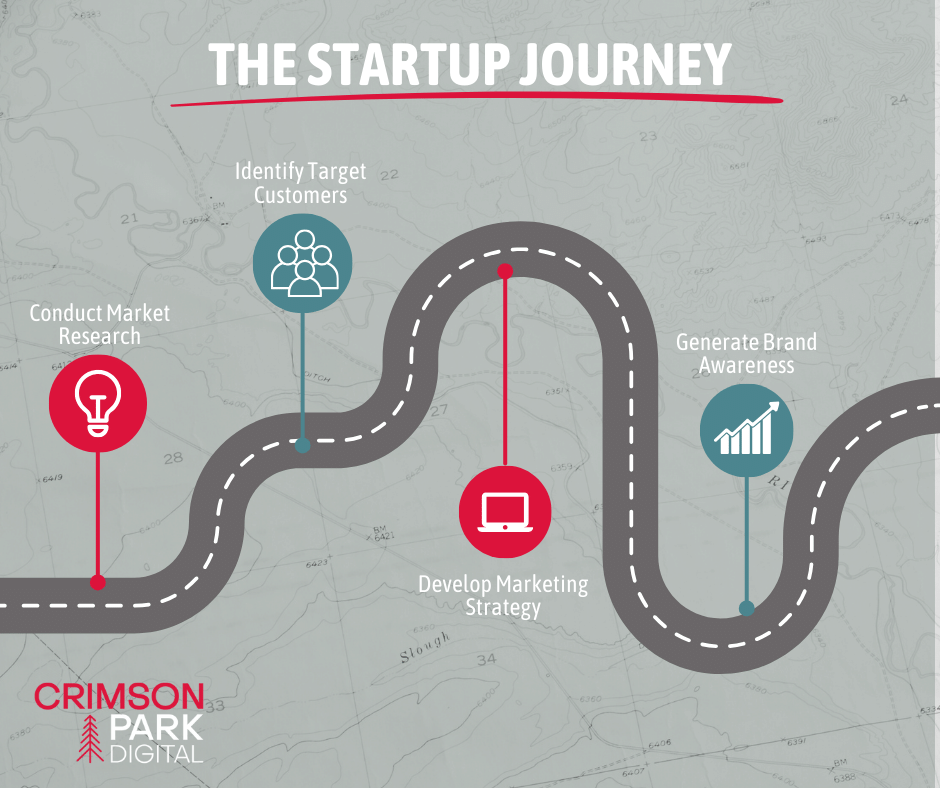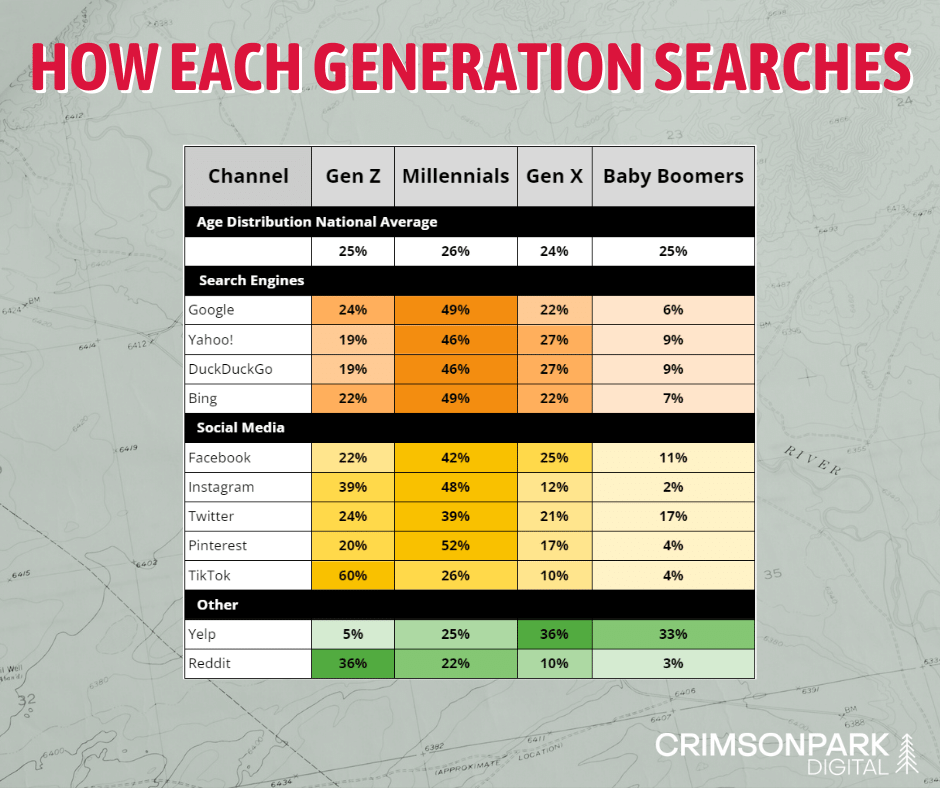3 Low-Cost Marketing Strategies for Startups
The entrepreneurship and startup landscape is demanding, highly competitive, and dynamic in its pace of change. Because of this, digital marketing is often seen as a sunk cost, with funding priority going toward operations and product development. But digital marketing doesn’t have to cost a fortune; there are several low-cost marketing strategies for startups to employ before they even officially launch.
Digital marketing for startups is essential for building brand recognition, attracting customers, and establishing a strong online presence without burning through your funding. We’re outlining a variety of budget-friendly digital marketing strategies, offering practical insights for startup founders and small teams looking to navigate the world of digital marketing while keeping their financial resources in check.
Whether you’re aiming to grow demand for your product or service, establish a sales pipeline of leads, or simply boost brand visibility, these strategies will provide actionable solutions to drive your startup toward success.
Best Practices for Startup Marketing (Pre-Launch and Seed Stage)
In the pre-launch and seed stages of startup development, resources allocated to digital marketing need to be carefully considered. These early phases are pivotal, setting the foundation for your startup’s future success. These are the moments when you’re planting the seeds of your brand, and getting it right from the beginning can make all the difference as you work toward growth and recognition.
The pre-launch period is all about building anticipation and excitement, generating buzz around your product or service. This is where effective pre-launch, seed stage startup marketing strategies come into play, from building a strong online presence to priming your audience with sneak peeks and teasers. As you transition into the seed stage, the focus shifts towards nurturing your early customer base and refining your marketing strategies based on valuable feedback. All along the way, the emphasis is on staying lean, adaptable, and budget-savvy, while still creating a solid foundation for your startup’s growth.
Keep these best practices in mind during the early stages of your startup’s development:
Identify Your Target Audience Before Launching
Identifying your target audience is a foundational step in any organization’s marketing journey. Before you put yourself out there among competitors in your industry, it’s crucial to pinpoint the individuals or groups most likely to resonate with your offerings. Knowing your target audience enables you to tailor your marketing efforts with precision, ensuring that your message reaches the right people at the right time.
In the pre-launch phase, take the time to conduct thorough market research, gather insights, and create detailed buyer personas. These personas represent your ideal customers, and they’ll serve as the guiding stars for your marketing strategies.
By understanding your audience’s needs, preferences, pain points, and behaviors, you can craft content, messages, and offers that genuinely connect. This, in turn, increases your chances of a successful launch and the steady growth of your startup.
So, before you take your first step, make sure you know who you’re stepping towards, and the journey will be much smoother.
Regularly Publish Blogs and Social Media Content Before Your Product Launches
Publishing blogs and maintaining an active presence on social media before your brand officially launches is the best way to begin building authority and recognition in your industry.
Pre-launch content creation serves multiple critical purposes:
- It builds anticipation and generates buzz around your upcoming product or service.
- It establishes your brand’s authority and expertise in your industry by providing valuable information, insights, and solutions.
- It keeps your audience engaged and informed, so when your product does launch, you already have a group of customers ready to act.
In today’s world, customers are more likely to choose brands they perceive as trustworthy and knowledgeable about the product or service’s niche. Pre-launch content is all about creating a community of early adopters, sparking conversations, and ensuring your startup’s entrance into the market is met with the enthusiasm it deserves.
Low-Cost Digital Marketing Strategy for Startups #1: Content Creation and Distribution
Content creation and distribution is the ideal introduction to digital marketing for startups, due to its cost-effective and high-impact nature. This strategy allows startups to create valuable, engaging, and informative resources that resonate with their target audience, all while staying within budget constraints.
By consistently sharing and repurposing this content on various platforms, such as the organization’s blog and social media channels, startups can build brand recognition, attract and engage potential customers, and establish a strong online presence.
Today’s consumers seek information and solutions online before consulting other sources, and digital content creation and distribution enables startups to position themselves as industry experts. It’s a strategy that not only drives organic traffic but also lays the foundation for trust and long-term organic results. In essence, for startups, content is king when it comes to long-term, cost-effective digital marketing goals.
Specific tactics that fall under content creation and distribution include:
- Content Marketing
- Social Media Planning
- Blogging
- Video Creation
- Guest Blogging
- Publishing Press Releases
Low-Cost Digital Marketing Strategy for Startups #2: Audience Development and Engagement
Post-launch, audience development and engagement are important strategies for startups, especially when working with limited resources. This process focuses on connecting with the right people in a meaningful way to drive brand loyalty and growth. Startups often face the challenge of creating a foothold in competitive markets. Creating a community of loyal supporters is a great way to stand apart from the rest.
This strategy involves leveraging social media, email marketing, and other channels to interact, provide value, and build relationships with potential customers. By doing so, startups can not only attract attention but also nurture leads and convert them into devoted customers.
Audience engagement and building is about fostering trust and loyalty in your brand, which can be more cost-effective and impactful than pursuing a broad, costly advertising approach. In the startup world, where every dollar counts, this strategy is key to building a solid foundation for sustainable growth.
Specific tactics that fall under audience development and engagement include:
- Email Marketing
- Influencer Marketing
- Community or Industry Engagement
- Public Relations
- Encouraging User-Generated Content
- Content Partnerships and Co-Marketing
Low-Cost Digital Marketing Strategy for Startups #3: SEO and Online Visibility
Search Engine Optimization (SEO) is an invaluable strategy for startups looking to maximize their online visibility without breaking the bank. A strong SEO strategy can significantly impact a startup’s success by helping them ‘own’ queries and key phrases that are both important to their business, and frequently searched by users in Google, Bing, and other search engines. It’s extremely important to have your brand’s offering highly visible to those actively seeking a solution to their problem.
Startup SEO involves optimizing your website to rank higher in search engine results, driving organic traffic, and, ultimately, reducing your customer acquisition costs. It not only increases the visibility of your business but also positions it as a credible resource in your niche.
The importance of this strategy lies in its ability to level the playing field for startups, enabling them to compete with more established brands in the online arena. With careful keyword research and optimization, startups can enhance their online presence and attract relevant, highly engaged visitors who are more likely to convert into loyal customers, all while managing their marketing budget effectively.
Specific tactics that fall under startup SEO include:
- Keyword Research
- On-page SEO
- Link Building
- Schema Markup
- Local SEO (if relevant)
- User Experience (UX) Optimization
Hiring a Fractional Marketing Executive for Startups
Hiring a fractional marketing executive can be a game-changer for startups looking to navigate the complex world of marketing. These experienced professionals offer a cost-effective solution for startups with limited resources. They bring a wealth of knowledge and expertise to the table, helping startups craft and implement effective marketing strategies without the commitment of a full-time hire.
Fractional marketing executives offer a flexible arrangement, allowing startups to scale their marketing efforts as needed. This agility is crucial for emerging businesses, as it allows them to adapt to changing market conditions and customer needs.
Reach out to our founder at info@crimsonparkdigital.com to see how a fractional executive can give your startup a competitive edge.
Frequently Asked Questions
What are some low-cost digital marketing strategies that startups can use before officially launching?
Some low-cost, seed stage startup digital marketing strategies include content creation, social media engagement, email marketing, and SEO optimization. These tactics help build brand awareness and establish an online presence without a significant financial investment.
Why is audience engagement and building important for startups?
Audience engagement and building are crucial for startups because they foster brand loyalty, drive growth, and establish a community of supporters. This allows startups to connect with the right people and create lasting, cost-effective relationships.
Is a fractional marketing executive or full-time CMO better for startups?
The choice between a fractional marketing executive or a full-time CMO depends on the startup's specific needs and budget. Fractional executives offer cost-effective flexibility, while full-time CMOs provide dedicated leadership but may be more expensive.


